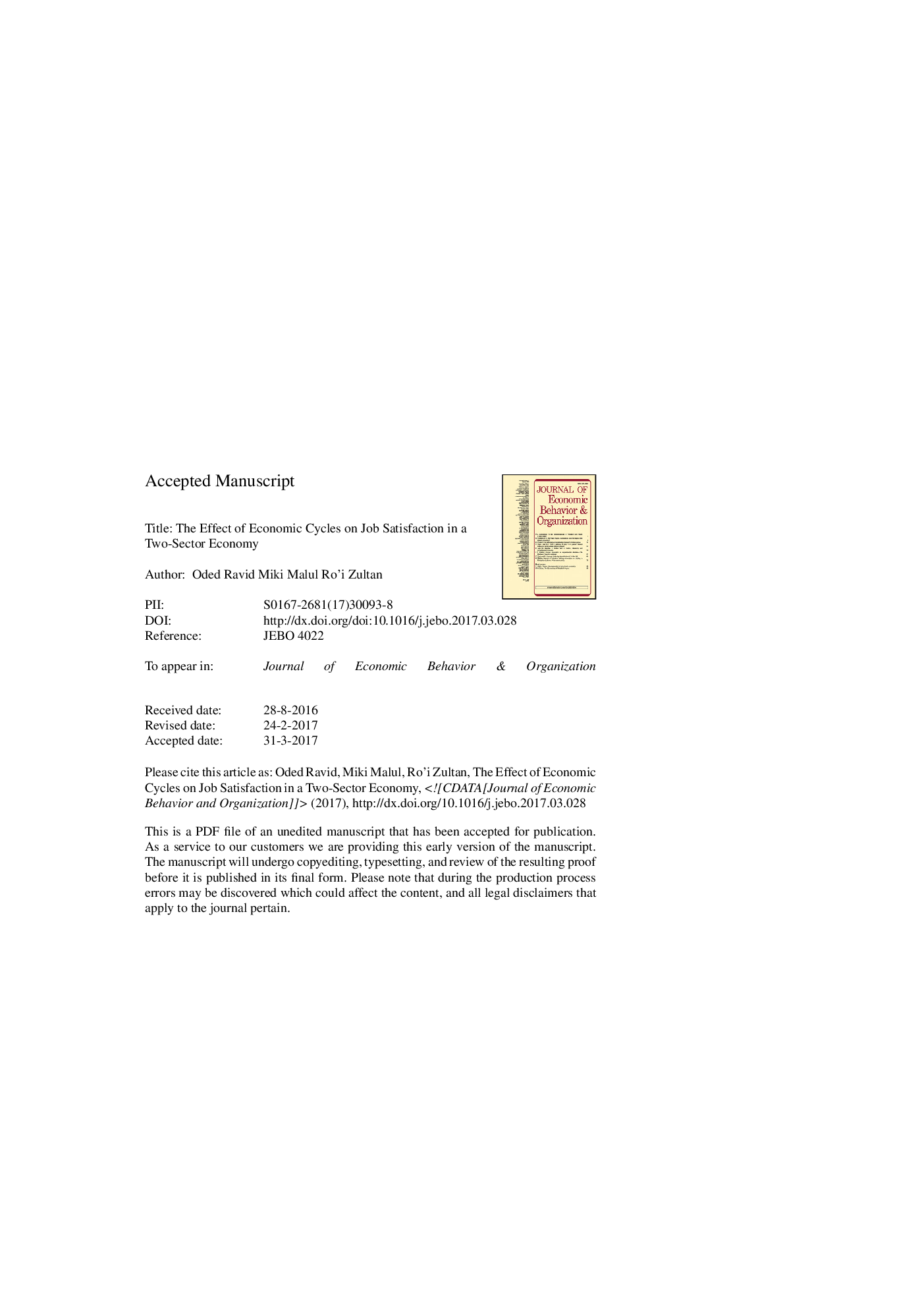| Article ID | Journal | Published Year | Pages | File Type |
|---|---|---|---|---|
| 5034639 | Journal of Economic Behavior & Organization | 2017 | 20 Pages |
Abstract
Economic growth improves the material well-being of all workers. However, when remuneration in the public sector is less sensitive to economic cycles than in the private sector, as is typically the case, economic growth will worsen the position of workers in the public sector relative to workers in the private sector, even though their income improves in absolute terms. As a result, job satisfaction may be countercyclical in the public sector. We test this counterintuitive hypothesis in a real-effort laboratory experiment that simulates an economy with two sectors differing only in their remuneration scheme. Economic cycles are introduced in order to test for their effect on job satisfaction and productivity in each sector. We find that job satisfaction in the “public” sector is negatively correlated with the state of the economy. This effect, however, does not carry over to productivity: even though an increase in a worker's productivity in the public sector reduces his relative income, in comparison to a similar private sector worker, we find that this does not have a negative effect on job satisfaction.
Related Topics
Social Sciences and Humanities
Economics, Econometrics and Finance
Economics and Econometrics
Authors
Oded Ravid, Miki Malul, Ro'i Zultan,
